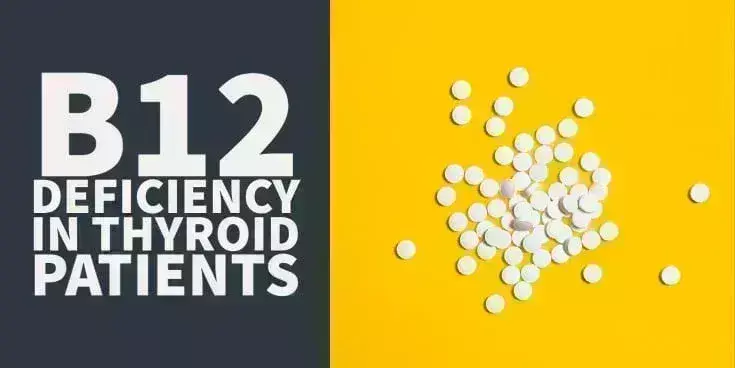- Home
- Medical news & Guidelines
- Anesthesiology
- Cardiology and CTVS
- Critical Care
- Dentistry
- Dermatology
- Diabetes and Endocrinology
- ENT
- Gastroenterology
- Medicine
- Nephrology
- Neurology
- Obstretics-Gynaecology
- Oncology
- Ophthalmology
- Orthopaedics
- Pediatrics-Neonatology
- Psychiatry
- Pulmonology
- Radiology
- Surgery
- Urology
- Laboratory Medicine
- Diet
- Nursing
- Paramedical
- Physiotherapy
- Health news
- Fact Check
- Bone Health Fact Check
- Brain Health Fact Check
- Cancer Related Fact Check
- Child Care Fact Check
- Dental and oral health fact check
- Diabetes and metabolic health fact check
- Diet and Nutrition Fact Check
- Eye and ENT Care Fact Check
- Fitness fact check
- Gut health fact check
- Heart health fact check
- Kidney health fact check
- Medical education fact check
- Men's health fact check
- Respiratory fact check
- Skin and hair care fact check
- Vaccine and Immunization fact check
- Women's health fact check
- AYUSH
- State News
- Andaman and Nicobar Islands
- Andhra Pradesh
- Arunachal Pradesh
- Assam
- Bihar
- Chandigarh
- Chattisgarh
- Dadra and Nagar Haveli
- Daman and Diu
- Delhi
- Goa
- Gujarat
- Haryana
- Himachal Pradesh
- Jammu & Kashmir
- Jharkhand
- Karnataka
- Kerala
- Ladakh
- Lakshadweep
- Madhya Pradesh
- Maharashtra
- Manipur
- Meghalaya
- Mizoram
- Nagaland
- Odisha
- Puducherry
- Punjab
- Rajasthan
- Sikkim
- Tamil Nadu
- Telangana
- Tripura
- Uttar Pradesh
- Uttrakhand
- West Bengal
- Medical Education
- Industry
Low Levels of Vitamin B12 linked to Hypothyroidism

Researchers have found in a new Study that Patients With Hypothyroidism Have Lower Levels of Vitamin B12.
Patients with hypothyroidism had lower levels of vitamin B12 when compared with healthy participants, according to a study published in Frontiers in Endocrinology. Further there were no significant differences in vitamin B12 levels among patients with hyperthyroidism, subclinical hypothyroidism (SH), and autoimmune thyroid disease (AITD).
Some vitamins play a role in moderating thyroid function, including vitamins A, B, D, and E.2 In the case of B complex vitamins, B12 is indispensable to several biochemical processes and plays a central role in hematopoiesis.
The pooled frequencies, mean differences (MD), and 95% confidence intervals (CI) of vitamin B12 levels in adult patients with thyroid disorders and healthy controls was evaluated using a meta-analysis of random-effects model. A systematic search was conducted in Scopus, Web of Science, Embase, and PubMed.
Eligible studies evaluated the frequency of B12 deficiency in patients with thyroid disorders, differences in the B12 levels between patients with thyroid disorders and healthy controls, and the frequency of anti-parietal cell antibodies (APCA) in patients with thyroid disorders.
In total, 64 studies (n=28,597), published between 1967 and 2022, were identified. Forty studies analyzed B12 abnormalities in patients with hypothyroidism, 17 evaluated B12 levels in patients with hyperthyroidism, 21 focused on B12 deficiencies in patients with AITD, and 10 evaluated B12 deficiencies in patients with SH. Patients with hypothyroidism had lower levels of vitamin B12 when compared with healthy participants (MD: -60.67 pg/mL; 95% CI: -107.31 to -14.03 pg/mL; P = 0.01).
No significant differences in B12 levels were noted between healthy controls and patients with AITD (MD: −19.28 pg/mL; 95% CI: −50.04 to 11.48 pg/mL; P = 0.22), SH (MD: −2.71 pg/mL; 95% CI: −23.12 to 17.7 pg/mL; P = 0.79), or hyperthyroidism (MD: −7.71 pg/mL; 95% CI: −62.96 to 47.55 pg/mL; P = 0.78).
The incidence of a vitamin B12 deficiency was 27% in the hypothyroidism group, 17% for patients with SH, 18% for those with AITD, and 6% for patients with a hyperthyroidism diagnosis. The co-occurrence of APCA and vitamin B12 deficiency in patients with thyroid disorders did not surpass 30% in any of the included studies.
According to investigators, the high statistical heterogeneity could only be reduced via a sensitivity analysis in some cases. Additionally, most studies included in the analysis were conducted in Asia, which may have limited the findings. Therefore, differences in B12 levels among patients of different ethnicities should be evaluated and compared to determine generalizability. The vitamin B12 levels were not adjusted for sociodemographic variables or comorbidities, which could have allowed for a cut-off consensus. Investigators emphasized the need for future research to address these concerns.
The findings are particularly useful in clinical settings as they emphasize the necessity of in-depth evaluations of vitamin B12 levels in patients with thyroid disorders,” investigators concluded. “Nearly 1 in 4 patients with either SH or hypothyroidism suffers from B12 deficiency. Although it is tempting to suggest routine vitamin B12 assessment in patients with thyroid disorders, more studies are needed to support this practice,
References:
Benites-Zapata VA, Ignacio-Cconchoy FL, Ulloque-Badaracco JR, et al. Vitamin B12 levels in thyroid disorders: A systematic review and meta-analysis. Front Endocrinol (Lausanne). 2023;14:1070592. Published 2023 Feb 22. doi:10.3389/fendo.2023.1070592
Triggiani V, Tafaro E, Giagulli V, Sabba C, Resta F, Licchelli B, et al. Role of iodine, selenium and other micronutrients in thyroid function and disorders. Endocr Metab Immune Disord Drug Targets (2009) 9:277–94. doi: 10.2174/187153009789044392
Dr. Shravani Dali has completed her BDS from Pravara institute of medical sciences, loni. Following which she extensively worked in the healthcare sector for 2+ years. She has been actively involved in writing blogs in field of health and wellness. Currently she is pursuing her Masters of public health-health administration from Tata institute of social sciences. She can be contacted at editorial@medicaldialogues.in.
Dr Kamal Kant Kohli-MBBS, DTCD- a chest specialist with more than 30 years of practice and a flair for writing clinical articles, Dr Kamal Kant Kohli joined Medical Dialogues as a Chief Editor of Medical News. Besides writing articles, as an editor, he proofreads and verifies all the medical content published on Medical Dialogues including those coming from journals, studies,medical conferences,guidelines etc. Email: drkohli@medicaldialogues.in. Contact no. 011-43720751


